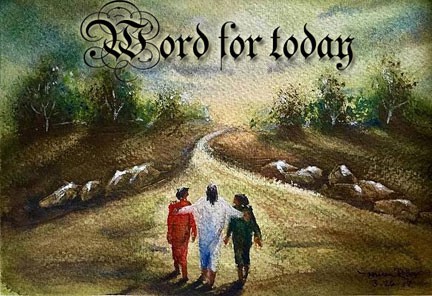Watch
Events
Articles
Market
More
Shalom, friends,
We invite you to join us live on YouTube at 3:30pm Central Time on this Sabbath afternoon, 10/25/2025, for scripture study and prayers.
The Torah portion for this week is called "Noach", which covers B'reishyth (Genesis) 6:9-11:32)
Read the portion beforehand, and be ready with your questions, comments and prayer requests.
Join us on YouTube at:
Many of our articles can be found in the library page of our website at:
Get our latest updates on our YouTube channel at:



Celebrate Erev Shabbath with
Sabbath Keepers Fellowship!
We've moved an hour earlier to stay with the season!
Every Sabbath Eve at 7:30pm Central Time we will host an informal get-together on our YouTube channel to bring-in and honor the seventh-day rest. We will have:
- A short Sabbath eve prayer service
- Highlights of the weekly Torah portion with some commentary
- Greetings to all present
- Followed by live music and discussion with whomever wishes to bring it.
His yoke is easy and the burden light! Join us for some simple celebration and fellowship to end your week. The entirety of the service should be about 1.5 hours long. If you play an instrument or sing, contact the service admin to join in. If you don’t, just listen as others do their best to honor our Creator on His holy day.
Discover the latest meeting at:



How do we get beyond identifying ourselves as sinners saved by grace? In a sense, we don't get beyond, but if that remains the center of our identity, we miss so much more that our Creator and Redeemer has for us. Barry Phillips and David Jones have some deep thoughts about this topic.
https://www.buzzsprout.com/229....2194/episodes/176920



How do we get beyond identifying ourselves as sinners saved by grace? In a sense, we don't get beyond, but if that remains the center of our identity, we miss so much more that our Creator and Redeemer has for us. Barry Phillips and David Jones have some deep thoughts about this topic.
https://www.buzzsprout.com/229....2194/episodes/176920



The Battle Belongs to YHWH | #battle



102225 / 29th day of the 7th month 5786
WORD FOR TODAY “has anything changed…Antifa”: Jdg 19:25 But the men would not listen to him. So the man seized his concubine and brought her out to them; and they raped her and abused her all night until morning, then let her go at the approach of dawn.
WISDOM FOR TODAY: Pro 21:15 The exercise of justice is joy for the righteous, But is terror to the workers of iniquity.
Ask the LORD how you can serve HIM better
www.BGMCTV.org



